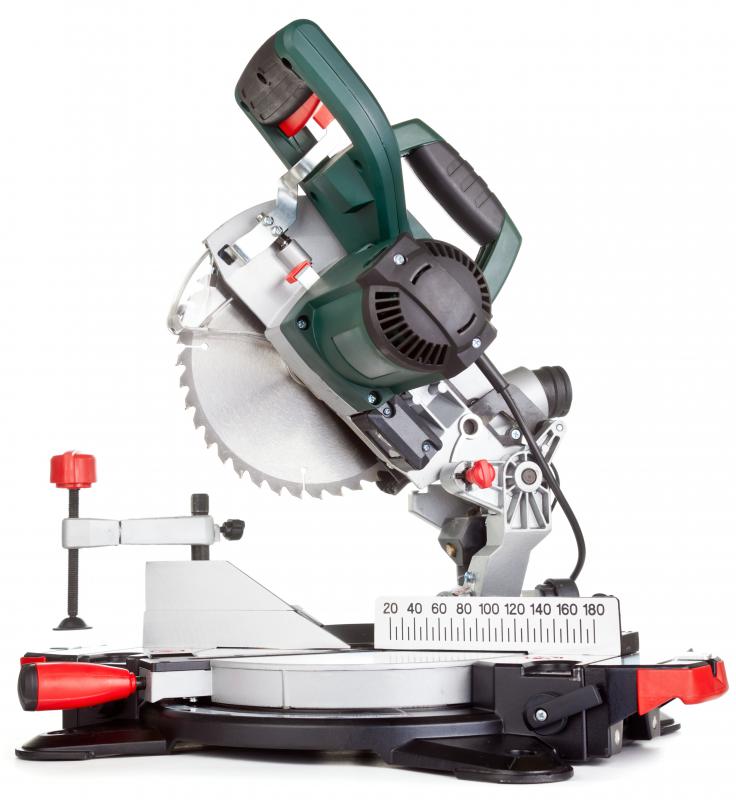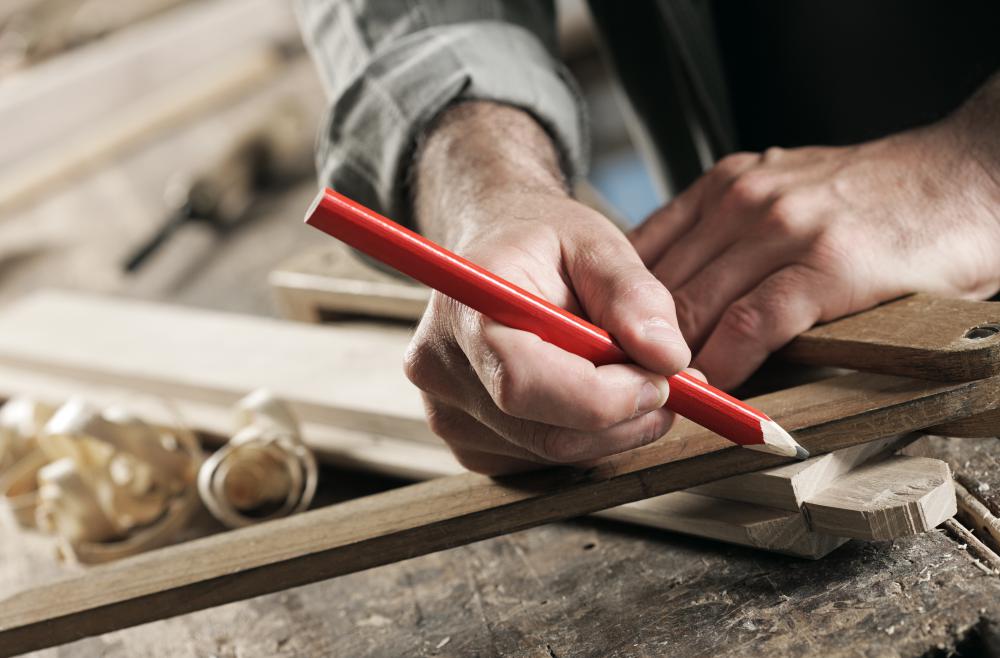At WiseGEEK, we're committed to delivering accurate, trustworthy information. Our expert-authored content is rigorously fact-checked and sourced from credible authorities. Discover how we uphold the highest standards in providing you with reliable knowledge.
How do I Become a Cabinetmaker?
There are four requirements to become a cabinetmaker: aptitude, education, experience and certification. All four are required to obtain employment as a cabinetmaker. A cabinetmaker is a craftsperson who is responsible for constructing cabinets from wood through a combination of design and physical effort.
A cabinetmaker is considered a skilled trade. In this role, you work exclusively with your hands and tools to create a finished product from raw materials, such as wood or composite materials. A natural aptitude for measurement, manual dexterity, detail-oriented work and physical labor is required. All cabinetmakers must be physically strong and able to lift and move large pieces of finished product as required.

In order to become a cabinetmaker, completion of an apprenticeship program is required. This type of program is a combination of job training and classwork. A high school diploma is not required to gain admittance to an apprenticeship program, but most employers prefer it.
The classwork portion of the program is offered through a wide range of community and career colleges. This is usually five to six months of full-time school. A work placement is then arranged with a local carpenter who will train you in the practical requirements of this job. An apprenticeship typically lasts five to seven years.

Throughout this time period, the apprentice gains experience in the use of tools, selection of materials, construction techniques and design. There are specific requirements for each year of the program, and evaluation reports must be submitted by the supervisor to the program manager.
Trade certification is awarded upon successful completion of the program requirements. Although certification is not a mandatory requirement to work as a cabinetmaker, many employers will require it and it opens the door for setting up your own business. Carpenters without certification may have difficulty securing new clients, starting a business of finding projects of interest.
If you are thinking of becoming a cabinetmaker, invest the time to develop basic carpentry skills. Look at part-time courses offered by the local community college program on basic carpentry, using tools and building cabinets. On average, 10,000 hours of work are required to become a master in any skill. Start early and invest the time necessary to learn as much as you can.
Many cabinetmakers are required to provide their own tools while working as an apprentice. The tools required range in total cost between $3,000 and $10,000 US Dollars (USD). Funding is available to assist with these costs through a combination of state and federal employment programs. In addition, many states include the purchase of tools as a tax-deductible expense, so long as the tools are employment-related.
AS FEATURED ON:
AS FEATURED ON:












Discussion Comments
I have been working as a cabinet maker for 15 years. I am very skilled but did not get my trade papers. what can i do to gain the papers i need without going to trade school, as i teach a lot of apprentices?
Post your comments